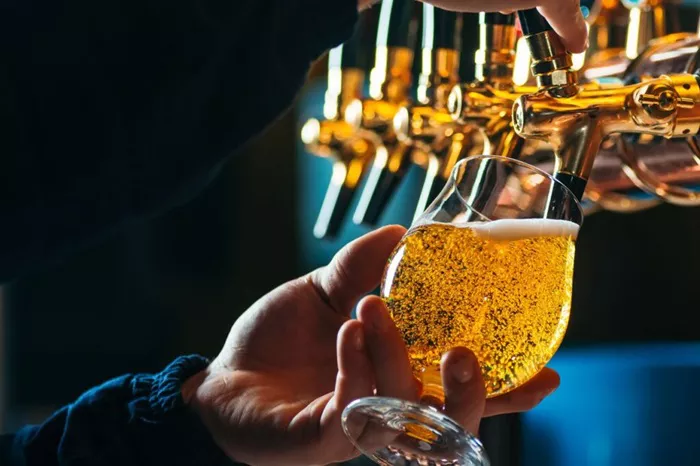Menopause is a significant stage in a woman’s life, marked by various physical and emotional changes. As women navigate this phase, they often seek ways to manage symptoms and maintain their overall health. One question that may arise is whether beer can be beneficial during menopause. In this comprehensive guide, we will explore the relationship between beer and menopause, examining the potential benefits and risks.
Understanding Menopause
Menopause is the time in a woman’s life when her menstrual periods stop permanently. It typically occurs around the age of 50, but can happen earlier or later. During menopause, the body undergoes hormonal changes, primarily a decrease in estrogen and progesterone levels. These hormonal shifts can lead to a variety of symptoms, including hot flashes, night sweats, mood swings, vaginal dryness, and sleep disturbances.
The Composition of Beer
Beer is made from several ingredients, including water, malted barley, hops, and yeast. Malted barley provides the sugars that are fermented by yeast to produce alcohol. Hops add bitterness and flavor, while yeast is responsible for the fermentation process. Beer also contains various vitamins and minerals, although in relatively small amounts.
Potential Benefits of Beer for Menopause
1. Relaxation and Stress Relief
One potential benefit of beer is its ability to promote relaxation and reduce stress. Menopause can be a stressful time, with hormonal changes and life transitions contributing to increased anxiety and tension. Beer contains alcohol, which can have a sedative effect and help women unwind after a long day. However, it’s important to consume beer in moderation, as excessive alcohol intake can have negative consequences on health.
2. Social Interaction
Beer is often enjoyed in social settings, such as at bars, restaurants, or gatherings with friends and family. Social interaction can be beneficial during menopause, as it provides an opportunity for women to connect with others, share experiences, and receive emotional support. Engaging in social activities can help alleviate feelings of isolation and loneliness that may accompany menopause.
3. Antioxidants
Beer contains antioxidants, such as flavonoids and polyphenols, which can help protect the body against oxidative stress. Oxidative stress is associated with various age-related diseases and can contribute to the development of menopausal symptoms. The antioxidants in beer may have a protective effect on cells and tissues, potentially reducing the risk of certain health problems.
Risks and Considerations
1. Alcohol Consumption and Health Risks
While moderate alcohol consumption may have some potential benefits, excessive drinking can have significant negative impacts on health. For women going through menopause, excessive alcohol intake can increase the risk of several health issues, including liver disease, heart disease, breast cancer, and osteoporosis. Additionally, alcohol can interfere with sleep, exacerbate hot flashes and night sweats, and contribute to weight gain.
2. Hormonal Effects
Alcohol can affect hormone levels in the body. In menopausal women, excessive alcohol consumption may disrupt the delicate hormonal balance further, potentially worsening symptoms such as hot flashes and mood swings. It’s important to be aware of the potential hormonal effects of alcohol and consume it in moderation.
3. Weight Gain
Beer is relatively high in calories, and regular consumption can contribute to weight gain. Weight gain is a common concern during menopause, as changes in metabolism and hormonal levels can make it easier to gain weight and more difficult to lose it. Excess weight can also increase the risk of various health problems, including heart disease, diabetes, and certain cancers.
4. Dehydration
Alcohol is a diuretic, which means it can cause increased urine output and lead to dehydration. Dehydration can exacerbate menopausal symptoms such as hot flashes and vaginal dryness. It’s important to drink plenty of water along with any alcohol consumption to stay hydrated.
Alternatives to Beer for Menopause
If you’re looking for alternatives to beer that can provide similar benefits without the risks, there are several options to consider.
1. Herbal Teas
Herbal teas, such as chamomile, peppermint, and lavender tea, can be soothing and help promote relaxation. These teas are caffeine-free and can be enjoyed throughout the day without the negative effects of caffeine on sleep or anxiety.
2. Non-Alcoholic Beverages
There are many non-alcoholic beverages available that can be refreshing and enjoyable. Sparkling water with a splash of fruit juice, herbal infusions, and decaffeinated coffee or tea are all good alternatives to beer. These beverages can provide hydration and flavor without the risks associated with alcohol.
3. Social Activities without Alcohol
Engaging in social activities that don’t involve alcohol can also be beneficial. Going for walks with friends, attending yoga classes, or joining a book club are all ways to socialize and have fun without the potential negative effects of alcohol.
4. Dietary Changes
Making healthy dietary choices can also help manage menopausal symptoms. Eating a balanced diet rich in fruits, vegetables, whole grains, lean proteins, and healthy fats can provide essential nutrients and support overall health. Some foods, such as soy products, flaxseeds, and calcium-rich foods, may have specific benefits for menopausal women.
Conclusion
In conclusion, while beer may offer some potential benefits in terms of relaxation and social interaction, it also comes with significant risks for menopausal women. Excessive alcohol consumption can lead to various health problems and may exacerbate menopausal symptoms. It’s important to consume beer in moderation, if at all, and be aware of the potential risks. Alternatives such as herbal teas, non-alcoholic beverages, and healthy social activities can provide similar benefits without the negative consequences. By making informed choices and taking care of your health, you can better manage menopause and enjoy this stage of life.
You might be interested


